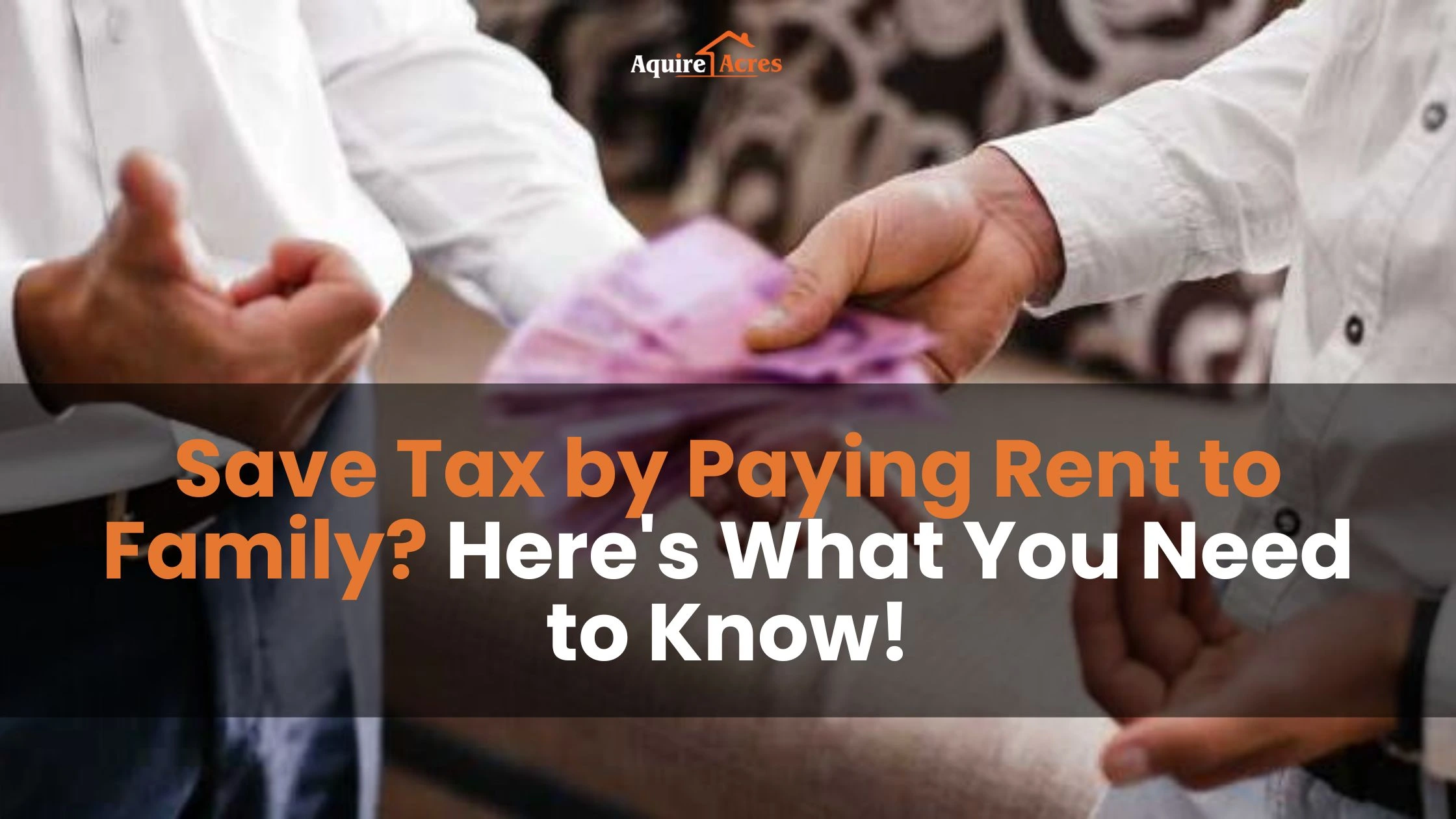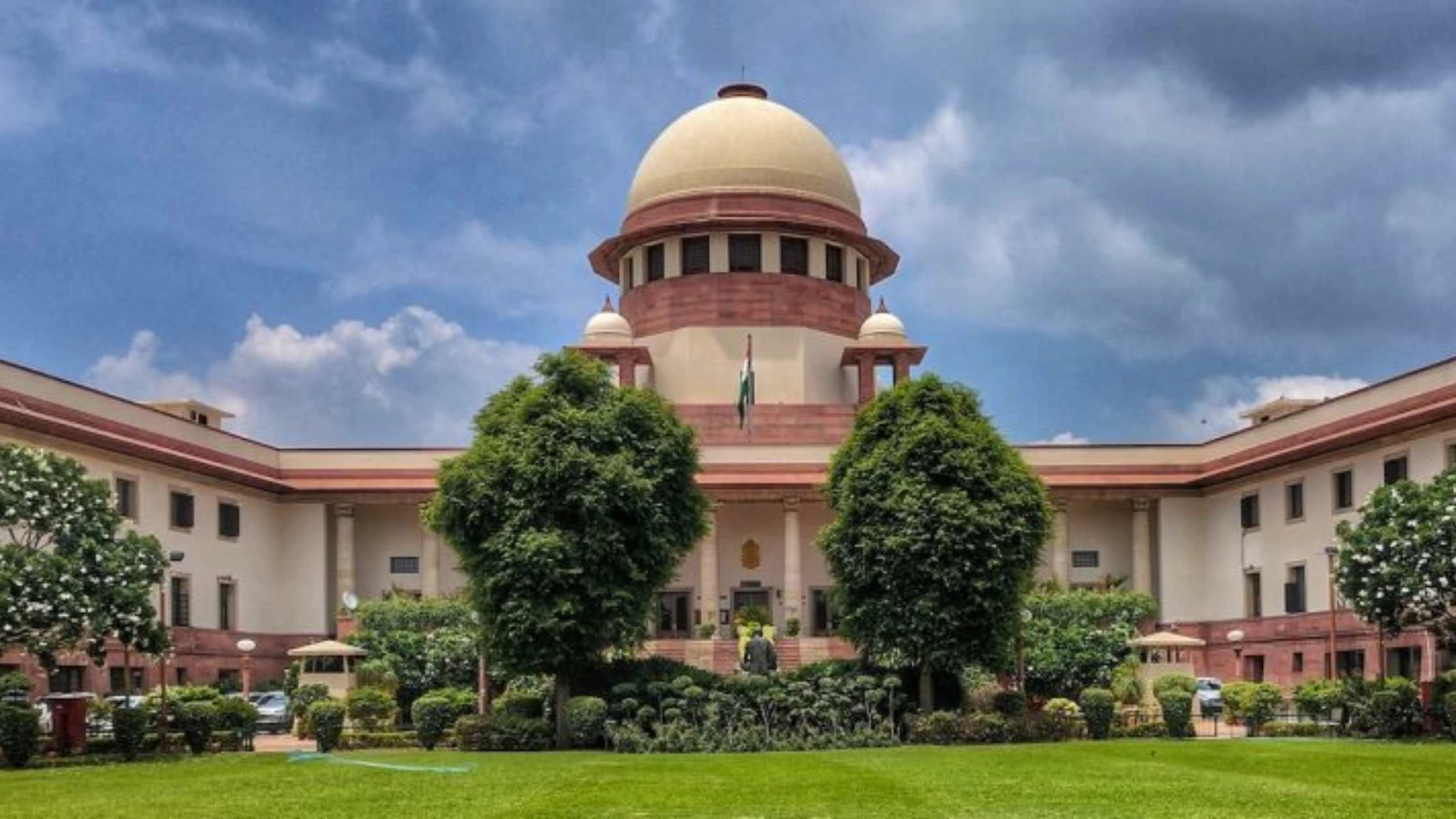Table of Content
▲- How Paying Rent to Family Members Can Help Save Tax
- Key Conditions for Claiming HRA Exemption on Rent Paid to Family Members:
- Tax Implications for Family Property Owners Receiving Rent
- Union Budget 2025-26: Tax Benefits for Property Owners
- Considerations for Family Members Renting Property
- Conclusion
Many salaried individuals seek ways to optimize their tax liabilities and one common question is whether paying rent to family members, such as parents, can help save taxes. Renting from family members is a valid option for tax savings, but it is essential to understand the rules and conditions under which this arrangement works.
In this blog, we’ll explore how paying rent to family members, especially parents, can benefit you tax-wise, the conditions that need to be met, and the tax implications for both the tenant and the property owner.
How Paying Rent to Family Members Can Help Save Tax
According to Section 10(13A) of the Income Tax Act, salaried individuals can claim House Rent Allowance (HRA) exemptions. The HRA exemption helps cover the cost of living in rented accommodation. However, if you live with your parents and pay rent to them, you can still claim HRA exemptions on the rent paid provided certain conditions are met.
Also Read: Mahindra Lifespaces Rs 950 Cr Redevelopment Boost for Mumbai
Key Conditions for Claiming HRA Exemption on Rent Paid to Family Members:
1. Rented Accommodation: To claim HRA exemption, you must reside in a rented property that is owned by your family member (e.g., parents). If the property is co-owned by both parents, rent must be paid to the one who is the legal owner.
2. Payment of Rent: Rent must be paid to the family member through traceable modes such as bank transfer or cheque. Cash payments without proper receipts will not be accepted for claiming HRA exemption.
3. Income Declaration by Parents: The family member receiving the rent must declare the rental income in their income tax returns and pay tax based on applicable tax slabs.
4. Non-Ownership of Property: You should not be the owner or co-owner of the property where you are living. The property must be rented from your parents to claim HRA benefits.
5. HRA as Part of Salary: The HRA should be part of your salary package (CTC) for it to be eligible for exemption.
6. Market Rent: Rent paid should be at market rates, i.e., the rent should be comparable to similar properties in the locality.
7. PAN Submission: To claim HRA exemption, you must submit the PAN of the landlord (your parent) to your employer.
By fulfilling these conditions, you can legally claim HRA exemptions for rent paid to family members, including parents. However, keep in mind that this exemption is only available under the old tax regime. In the new tax regime, HRA exemptions are not applicable.
Tax Implications for Family Property Owners Receiving Rent
While you, as a tenant, can claim tax exemptions, the rent paid to your family members is taxable for the property owner. The income received from renting out the property must be reported as rental income under the head “Income from House Property” in their income tax returns.
However, the property owner can avail of several tax deductions on the rental income:
1. 30% Standard Deduction: The property owner is entitled to a 30% standard deduction on the net annual value of the property. This deduction helps cover repairs, maintenance, and other property-related expenses, irrespective of the actual expenses incurred.
2. Property Taxes: The property owner can deduct property taxes and municipal taxes paid during the year from their rental income, provided they paid the taxes and not the tenant.
3. Home Loan Interest Deduction: Under Section 24(b) of the Income Tax Act, the property owner can claim tax deductions on the interest paid on a home loan. There is no upper limit on the interest deduction for rental properties.
4. Pre-construction Interest: If the property is under construction, the property owner can claim tax deductions for interest paid on the home loan during the construction phase. This interest can be divided into five equal installments after the property is completed.
5. Vacancy Loss: If the property remains vacant for a certain period and cannot be rented out, the owner can claim the vacancy loss, which helps reduce their taxable rental income.
Union Budget 2025-26: Tax Benefits for Property Owners
In the Union Budget for 2025-26, taxpayers will be allowed to claim the annual value of two self-occupied properties as ‘nil,’ meaning there will be no tax on notional rental income from these properties. This benefit applies to self-occupied properties without the need to fulfill specific conditions (such as being employed in another city or unable to occupy the property for business reasons). This amendment will bring relief to property owners and simplify tax regulations under Section 23 of the Income Tax Act.
Considerations for Family Members Renting Property
While renting from family members can provide significant tax benefits for tenants, the arrangement needs to be handled carefully:
1. Market Rent: Charging below-market rent to family members might cause the rental income to be classified differently for tax purposes, potentially leading to a loss of valuable deductions for the property owner.
2. Documenting Rent Payments: Rent must be paid via traceable means such as bank transfers. Cash payments without proper receipts or documentation can result in the tenant being unable to claim HRA exemptions.
3. Income Tax Compliance for Family Members: Property owners must ensure that they declare their rental income correctly and pay taxes accordingly to avoid penalties from the tax department.
4. HRA Eligibility: Tenants need to be aware of the rules surrounding HRA claims. Proper rent agreements, bank transactions, and PAN details must be provided to the employer to avail of HRA exemptions.
Conclusion
Paying rent to family members, such as parents, is a legal and viable strategy for saving taxes, provided that both the tenant and the property owner comply with the income tax regulations. Tenants can claim HRA exemptions, and property owners can benefit from tax deductions on rental income, such as property taxes and home loan interest. However, it is crucial to follow the prescribed conditions, including paying rent at market rates, using traceable payment methods, and reporting rental income in tax returns.
Renting from family members can provide tax savings for both parties, but the arrangement should be handled professionally with proper documentation. By following the guidelines, you can ensure that the tax benefits are fully realized while staying compliant with the tax laws.
Also Read: Builders Can't Deduct Over 10% of Base Price: Supreme Court Ruling Explained






Ans 1. Yes, you can claim House Rent Allowance (HRA) exemption if you pay rent to your parents, provided you meet all the necessary conditions such as paying rent through traceable methods and the property being rented from them.
Ans 2. You must: 1. Reside in a rented property owned by a family member. 2. Pay rent through traceable modes like bank transfer or cheque. 3. Ensure the rent is at market rates. 4. Submit the PAN of the landlord (your parent) to your employer. 5. Ensure the HRA is part of your salary package.
Ans 3. While a formal rent agreement is not mandatory, it is advisable to have one to avoid any disputes and ensure transparency when claiming HRA exemptions.
Ans 4. Yes, your parents must declare the rental income under "Income from House Property" in their income tax returns. They can also avail of deductions like the 30% standard deduction, property tax deductions, and home loan interest deductions.
Ans 5. Cash payments without proper receipts or documentation are not accepted for claiming HRA exemptions. Rent must be paid through traceable modes such as bank transfers or cheques.
Ans 6. Yes, under the Union Budget for 2025-26, property owners can claim the annual value of two self-occupied properties as 'nil,' meaning no tax will be levied on notional rental income from these properties.
Ans 7. Charging below-market rent could lead to tax complications for the property owner, such as losing valuable deductions. It’s important to ensure the rent is comparable to similar properties in the locality to avoid issues with tax authorities.
Ans 8. No, HRA exemptions are only available under the old tax regime. If you opt for the new tax regime, you cannot claim HRA benefits.